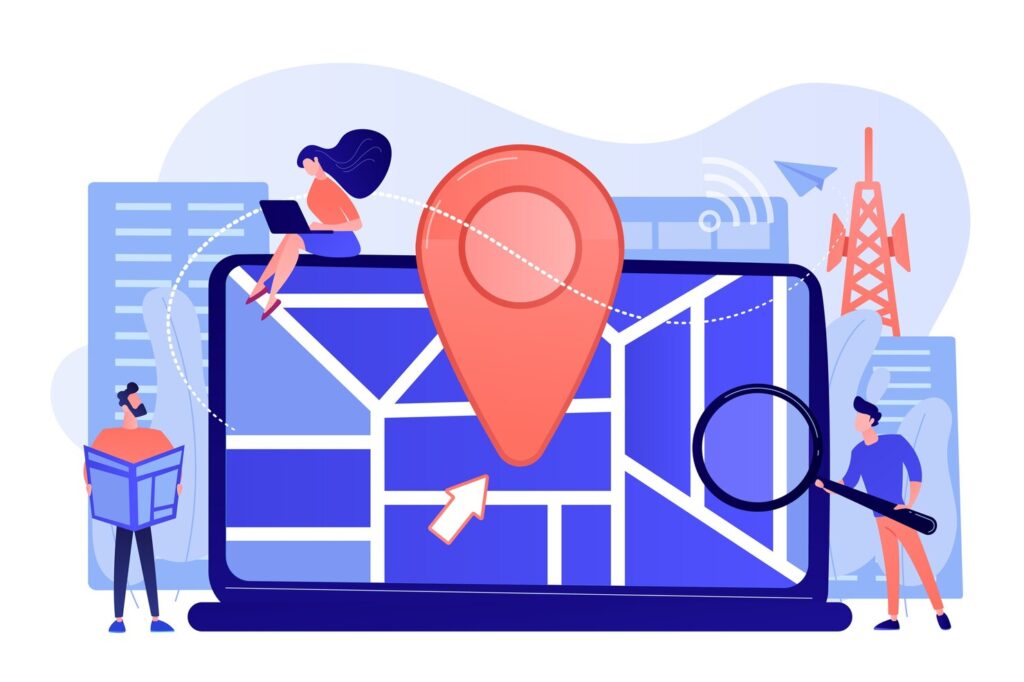Local SEO (Search Engine Optimization) is a crucial marketing strategy for small and medium-sized businesses (SMBs) aiming to attract local customers. Unlike traditional SEO, which focuses on improving a website’s visibility on a global scale, local SEO targets specific geographic locations, making it ideal for businesses that rely on local clientele. Whether you’re running a local bakery, a law firm, or a plumbing service, implementing effective local SEO strategies can significantly enhance your online presence and drive more foot traffic to your business.
Understanding Local SEO

What is Local SEO?
Local SEO is the process of optimizing your online presence to attract more business from relevant local searches. These searches take place on search engines such as Google and other sites like Yelp, Facebook, and Bing. By optimizing for local SEO, businesses can increase their visibility to potential customers in their geographic area.
Read – The Importance of Analytics in Digital Marketing
How Local SEO Differs from General SEO
While general SEO focuses on improving a website’s visibility on a global or national level, local SEO is all about targeting local customers. The primary difference lies in the intent behind the search queries. Local SEO leverages location-based keywords and tools like Google My Business to ensure businesses appear in local search results, maps, and local pack listings.
Key Components of Local SEO
- Google My Business (GMB): A free tool that allows businesses to manage their online presence across Google, including Search and Maps.
- Local Citations: Mentions of your business on other websites and directories.
- Online Reviews: Customer feedback on platforms like Google, Yelp, and TripAdvisor.
- Local Keywords: Search terms that include location-based phrases.
- Backlinks: Links from other local businesses and websites.
Setting Up Your Local SEO Foundation
Claiming and Optimizing Google My Business
Google My Business (GMB) is a fundamental tool for local SEO. It allows businesses to manage their online presence on Google Search and Maps. To optimize your GMB profile:
- Claim Your Business: If you haven’t already, claim your business listing on Google.
- Complete Your Profile: Ensure all information is accurate and complete, including business name, address, phone number (NAP), website, and hours of operation.
- Add Photos: Upload high-quality images of your business, products, and services.
- Collect Reviews: Encourage satisfied customers to leave positive reviews.
Ensuring NAP Consistency (Name, Address, Phone Number)
Consistency is crucial in local SEO. Ensure that your business’s name, address, and phone number (NAP) are consistent across all online platforms and directories. Inconsistent information can confuse search engines and potential customers, negatively impacting your local search rankings.
Creating and Optimizing Local Landing Pages
Local landing pages are designed to target specific geographic areas. To optimize these pages:
- Include Local Keywords: Use location-based keywords in the title, meta descriptions, headers, and content.
- Add a Map: Embed a Google map with your business location.
- Highlight Local Events and News: Create content around local happenings to engage your community.
Read – The Ultimate Guide to SEO for Beginners
Keyword Research for Local SEO

Importance of Keyword Research
Keyword research is a critical component of any SEO strategy, including local SEO. It helps you understand what terms and phrases potential customers are using to find businesses like yours.
Tools for Local Keyword Research
Several tools can assist with local keyword research, including:
- Google Keyword Planner: Offers insights into keyword search volume and competition.
- Moz Local: Provides keyword suggestions and tracks local search performance.
- Ahrefs: Analyzes competitor keywords and offers keyword suggestions.
How to Identify Local Keywords
To identify local keywords:
- Think Like a Customer: Consider what terms your customers might use to find your business.
- Include Location Modifiers: Use phrases like “near me,” “in [city],” or “local.”
- Analyze Competitors: Look at the keywords your local competitors are targeting.
On-Page SEO for Local Businesses
Title Tags and Meta Descriptions
Title tags and meta descriptions are critical for local SEO. They should include your primary keyword and location to help search engines and users understand the relevance of your page to their query.
Using Local Keywords in Content
Incorporate local keywords naturally throughout your website’s content. This includes:
- Headings and Subheadings: Use local keywords in H1, H2, and H3 tags.
- Body Text: Ensure your content is informative and includes relevant local keywords.
- Image Alt Text: Describe images using local keywords.
Structured Data Markup
Structured data markup (schema) helps search engines understand the context of your content. For local businesses, use LocalBusiness schema to provide detailed information about your business, such as address, phone number, and operating hours.
Content Strategy for Local SEO
Creating Locally Relevant Content
Creating content that resonates with your local audience is essential. This could include:
- Local News and Events: Blog about local happenings or events related to your industry.
- Customer Stories: Share testimonials and success stories from local customers.
- Community Involvement: Highlight your participation in local charities or events.
Blogging about Local Events and News
Keeping your blog updated with local events and news can drive local traffic to your site. It positions your business as a local authority and encourages community engagement.
Utilizing User-Generated Content
User-generated content, such as reviews, testimonials, and social media posts, can enhance your local SEO efforts. Encourage customers to share their experiences and showcase these on your website and social media channels.
Local Link Building Strategies
Importance of Local Backlinks
Backlinks from local websites signal to search engines that your business is relevant to the local area. They can improve your domain authority and local search rankings.
Building Relationships with Local Bloggers and Influencers
Collaborate with local bloggers and influencers to gain valuable backlinks. This could involve:
- Guest Blogging: Write articles for local blogs or news sites.
- Product Reviews: Send your product or offer your service to local influencers in exchange for a review.
Leveraging Local Sponsorships and Partnerships
Sponsoring local events or partnering with other local businesses can generate backlinks and increase your visibility in the community.
Online Reviews and Reputation Management
Encouraging Customer Reviews
Positive reviews are crucial for local SEO. Encourage customers to leave reviews by:
- Asking Directly: Request reviews via email or in person.
- Simplifying the Process: Provide easy-to-follow instructions or direct links to your review profiles.
Responding to Reviews
Engage with your customers by responding to their reviews, both positive and negative. This shows that you value their feedback and are committed to improving their experience.
Managing Negative Reviews
Handle negative reviews professionally and promptly. Acknowledge the issue, apologize, and offer a solution. This can help mitigate the impact of negative feedback and demonstrate your commitment to customer satisfaction.
Social Media and Local SEO
Role of Social Media in Local SEO
Social media can boost your local SEO efforts by increasing brand visibility and engagement. Platforms like Facebook, Instagram, and Twitter are essential for connecting with your local audience.
Best Practices for Social Media Engagement
To effectively use social media for local SEO:
- Post Regularly: Keep your audience engaged with consistent updates.
- Use Local Hashtags: Incorporate location-based hashtags to reach a local audience.
- Engage with Followers: Respond to comments and messages promptly.
Promoting Local Events and Content
Promote local events and share locally relevant content on your social media channels. This can drive traffic to your website and increase your local presence.
Mobile Optimization for Local SEO
Importance of Mobile-Friendly Websites
A mobile-friendly website is crucial for local SEO. Many users search for local businesses on their mobile devices, so your site must be optimized for mobile viewing.
Mobile SEO Best Practices
Ensure your website is mobile-friendly by:
- Using Responsive Design: Make sure your site adjusts to different screen sizes.
- Optimizing Page Speed: Ensure fast loading times on mobile devices.
- Simplifying Navigation: Make it easy for users to find information on your site.
Local SEO for Mobile Users
Focus on mobile-specific SEO tactics, such as:
- Voice Search Optimization: Optimize for natural language queries used in voice searches.
- Local Pack Listings: Ensure your business appears in local pack listings on mobile searches.
Local SEO Analytics and Tracking
Tools for Tracking Local SEO Performance
Several tools can help track your local SEO performance, including:
- Google Analytics: Monitor website traffic and user behavior.
- Google Search Console: Track search performance and identify issues.
- Moz Local: Manage local listings and track local search performance.
Key Metrics to Monitor
Monitor these key metrics to gauge your local SEO success:
- Local Search Rankings: Track your rankings for local keywords.
- Website Traffic: Monitor the amount of traffic coming from local searches.
- Online Reviews: Track the number and quality of your online reviews.
Analyzing and Adjusting Your Strategy
Regularly analyze your local SEO performance and adjust your strategies as needed. This could involve updating your keywords, improving your content, or enhancing your online presence.
Case Studies of Successful Local SEO
Example 1: Small Retail Business
A small retail business in a competitive market used local SEO to increase its online visibility. By optimizing their Google My Business profile, collecting positive reviews, and creating local content, they saw a significant increase in foot traffic and sales.
Example 2: Local Restaurant
A local restaurant leveraged local SEO to attract more diners. They optimized their website for local keywords, encouraged online reviews, and promoted local events on social media. As a result, their online reservations and in-person visits increased substantially.
Example 3: Regional Service Provider
A regional service provider improved their local SEO by creating optimized local landing pages for each of their service areas. They also built relationships with local bloggers and influencers, resulting in valuable backlinks and increased local search rankings.
Expert Insights on Local SEO
Quotes from SEO Professionals
“Local SEO is not just about getting found; it’s about being found by the right people at the right time.” – Jane Doe, SEO Expert
Tips from Local SEO Experts
- Focus on User Experience: Ensure your website is user-friendly and provides valuable information.
- Leverage Social Proof: Use customer reviews and testimonials to build trust.
Industry Predictions for Local SEO
Experts predict that voice search and AI will play increasingly significant roles in local SEO. Businesses should prepare by optimizing for natural language queries and staying updated on technological advancements.
Future Trends in Local SEO
Voice Search and Local SEO
Voice search is becoming more prevalent, and optimizing for voice queries can boost your local SEO efforts. Focus on conversational keywords and ensure your content answers common questions.
AI and Machine Learning in Local SEO
AI and machine learning are transforming local SEO by providing more personalized search results. Utilize AI tools to analyze data and improve your local SEO strategy.
The Growing Importance of Video Content
Video content is increasingly important for local SEO. Create engaging videos showcasing your products, services, and local events to attract more local customers.
Conclusion
Implementing effective local SEO strategies can significantly enhance your online presence and attract more local customers. By optimizing your Google My Business profile, ensuring NAP consistency, creating locally relevant content, and leveraging local backlinks, you can improve your local search rankings and drive more traffic to your business. Stay updated on local SEO trends and continuously refine your strategy to maintain your competitive edge.

